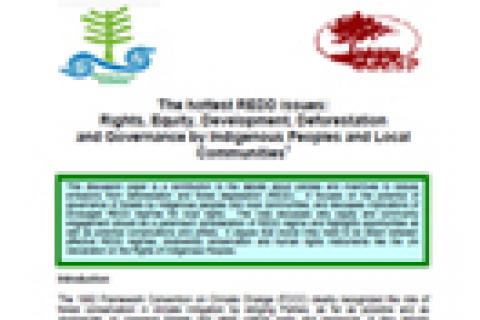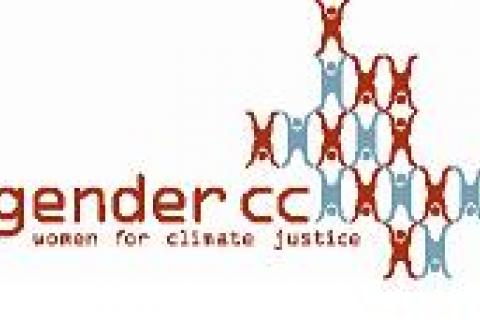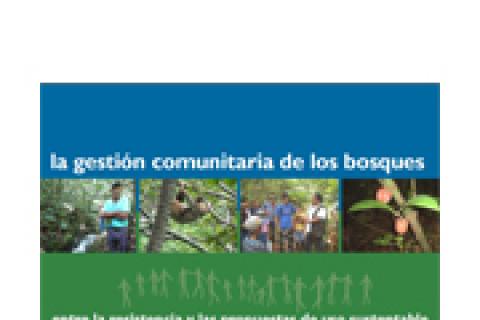Since 2002, when all forest management concessions were suspended, the Cambodian Government has moved to granting
Economic Land Concessions to private companies, primarily for the development of agro-industrial cultivation of crops such
as rice, cassava, rubber, acacia and agro-fuels. These plantations are intended to not only generate state revenue and
develop intensive agricultural activities, but also reduce poverty by promoting local employment opportunities. However from
Other information
China’s growing pulp and paper market is being the world's fastest. Although per capita paper consumption is less than ten per cent of the amount consumed in the US, China accounts for 14 per cent of global paper consumption. Jaakko Pöyry has estimated that paper consumption in China would increase at 4.4 per cent a year between 2000 and 2015. Much of that “consumption” is used in packaging of goods for export, which means that real per capita paper consumption in China is actually much lower.
Investments by foreign companies in commercial tree plantations in Laos PDR increased sharply increased during 2004-2006. Large scale plantations are promoted through state land concessions. Currently, an area of 167,000 ha has been transferred to foreign companies under large scale land concessions in the central and south regions of Laos. Of these, 48% or 80,000 ha are dedicated to rubber, and 28% of 46,600 ha are allocated to growing eucalyptus. However, the total area for growing rubber throughout the country has increased to 182,900 ha.
Since 2006 the small landlocked South East Asian nation of Laos has seen an explosion of small, large and medium scale plantations, particularly rubber, eucalyptus and biofuel crops. This increase in industrial tree plantations has not come about by itself however, but has been promoted by IFI's over the past decade as a means to increase Lao GDP. Foremost among the promoters of plantations development in Laos is the Asian Development Bank.
Rubber is one part of life of the people of the South, related both to the culture and economy of the last 108 years. The monoculture production system has replaced a traditional system of rubber forests, where rubber used to be grown in amongst fruit orchards and natural forests known as a suan somrom or “integrated garden”. Rubber plantations have been promoted through the government’s Welfare Fund for Rubber Plantations.
Thailand is making big plans, in particular for the next ten years, to boost agrofuel production particularly through expansion of oil palm plantations. However, the plans are not going anywhere yet due to the price volatility of agrofuel feedstock like palm oil and sugar as well as growing environmental concerns.
Thailand has two types of agrofuels: gasohol (mixture of gasoline and ethanol) and biodiesel. Gasohol made by mixing gasoline with 10% ethanol is called E10 (Gonsalves 2006).
Every year for the past decade or so, Vietnam has faced paper shortages. This year is no exception. In May 2008, Vietnam's
newspapers reported that publishing houses and printers were facing difficulties in buying supplies. The shortages were happening even though the country's two biggest pulp and paper mills, Bai Bang and Tan Mai were operating at full capacity and paper imports had increased sharply during the first months of the year.
Ask any Cambodian what s/he considers to be the foundation of society and life in Cambodia and the answer is likely to be “land.” Land is livelihood. But equally, land is valued as an emblem of rootedness, belonging and stability, and is widely regarded as the very basis of social organisation in the country.
In December 2005, Burma's Senior General Than Shwe ordered the start of a nation-wide campaign to plant Jatropha curcas for
biodiesel production. The country was to plant eight million acres [3.2 million hectares], or an area the size of Belgium, within three years. Each of Burma's states and divisions, regardless of size, were expected to plant at least 500,000 acres. In Rangoon Division, 20% of all available land will be covered by jatropha.
Prepared by the Task Force on Communities and REDD of the Commission on Environmental, Economic and Social Policy of IUCN in collaboration with the Global Forest Coalition. It is based on some of the best analysis produced by CEESP members on REDD, rights and equity, and the importance of Indigenous Territories and Community Conserved Areas (ICCAs), and the GFC Life as Commerce report.
Poznan, December 6. GenderCC, a worldwide network whose main objective is to integrate gender justice in climate change policy at local, national and international levels, has submitted today to the Secretariat of the UNFCC and is distributing to the delegates, the following document containing the main points the network believes should be taken into account in the Assembly document.
Only available in Spanish. Por Amigos de la Tierra, 2008



